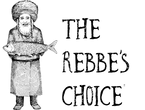It is said of the great Tzaddik Rav Elimelech of Lizhensk that when he did Teshuvah he went so far back in his life that he would do Teshuvah for causing his mother pain during his birth. A great Tzaddik like Rav Elimelech may indeed want to think so far back in their lives to find wrongdoing, but we don’t necessarily have to think too far back to find a situation in which we may have made a mistake that we need to rectify. The Gemara in Brachos (61b) teaches us that Tzaddikim are judged by the Yetzer Tov, evil people are judged by the Yetzer Hara, and regular people – Beinonim – the inbetweeners, are judged by both. We are always taught that the One who judges is Hashem, so what could the Gemara mean when it tells us that we are each judged by our inclinations? Rav Elimelech of Lizhensk in his Sefer Noam Elimelech supplies an answer, he says that when a Tzaddik is judged by his Yetzer Tov it means that the Tzaddik’s Yetzer Tov is constantly guiding him on a better path to serve Hashem. Incessantly pointing out all of the little flaws in the Tzaddik’s Avodas Hashem so he may better himself. When it says a Rasha is judged by his Yetzer Hara it means that the evil inclination within him is always telling him that no matter how much he does wrong he is doing the right thing. Yet the Beinonim, which as the Gemara says we are, are judged by both, meaning that he needs to constantly be balancing his behavior. Not leaning too much to the side of evil believing that his actions are proper but also not to make himself crazy over little things that Tzaddikim may have to be concerned about, but not us. Our parsha’s first pesukim apply to all Jews, on every level but its words are most relevant to the average person. The parsha begins; “Judges and officers you shall appoint at your gates…” (16:18) this not only applies to the physical gates of our cities but also to the gates of our bodies; our mouth, our eyes, our ears. The Torah is prompting us to make sure that the sights we see, the words we hear and the words we speak are all scrutinized and weighed out in order not to damage ourselves or others. These judges are the inclinations of the Beinoni.
We each have two judges within us, an evil judge and a pure, holy judge. Where we utilize these judges is at the gates. Everything we do in this world, whether positive or negative, has a gate in front of it. A spiritual barrier that we need to pass through before that action occurs. When we come across an opportunity to do a mitzvah we need to make sure the right judge is at the gate. That the gates of holiness are never barricaded shut by our Yetzer Hara, and vice versa we must make sure that our Yetzer Tov is the officer at the gates to sin – urging us not to cross its threshold. The best route the Torah lays down for us to reach a level of balance is also in this parsha, the pasuk tells us “Tamim T’Yiheh Im Hashem Elokeichem – Be wholehearted with God” (18:13). The true way to keep ourselves on the right path and make sure that we only let in the positive and pass through the gates of positivity is to be with God. To shed our ego and realize that The Master of The Universe is much greater than our free will. Through removing the ego from ourselves we become unified with Hashem and we will clearly see the judges at each gate, for the closer we grow to Hashem the more freedom will we attain, but the more we will utilize it to come closer to Him, and then we as the inbetweeners will be able to truly be proper judges.


